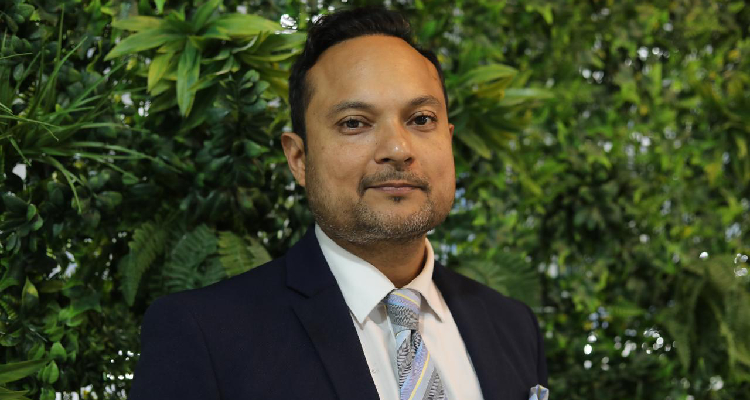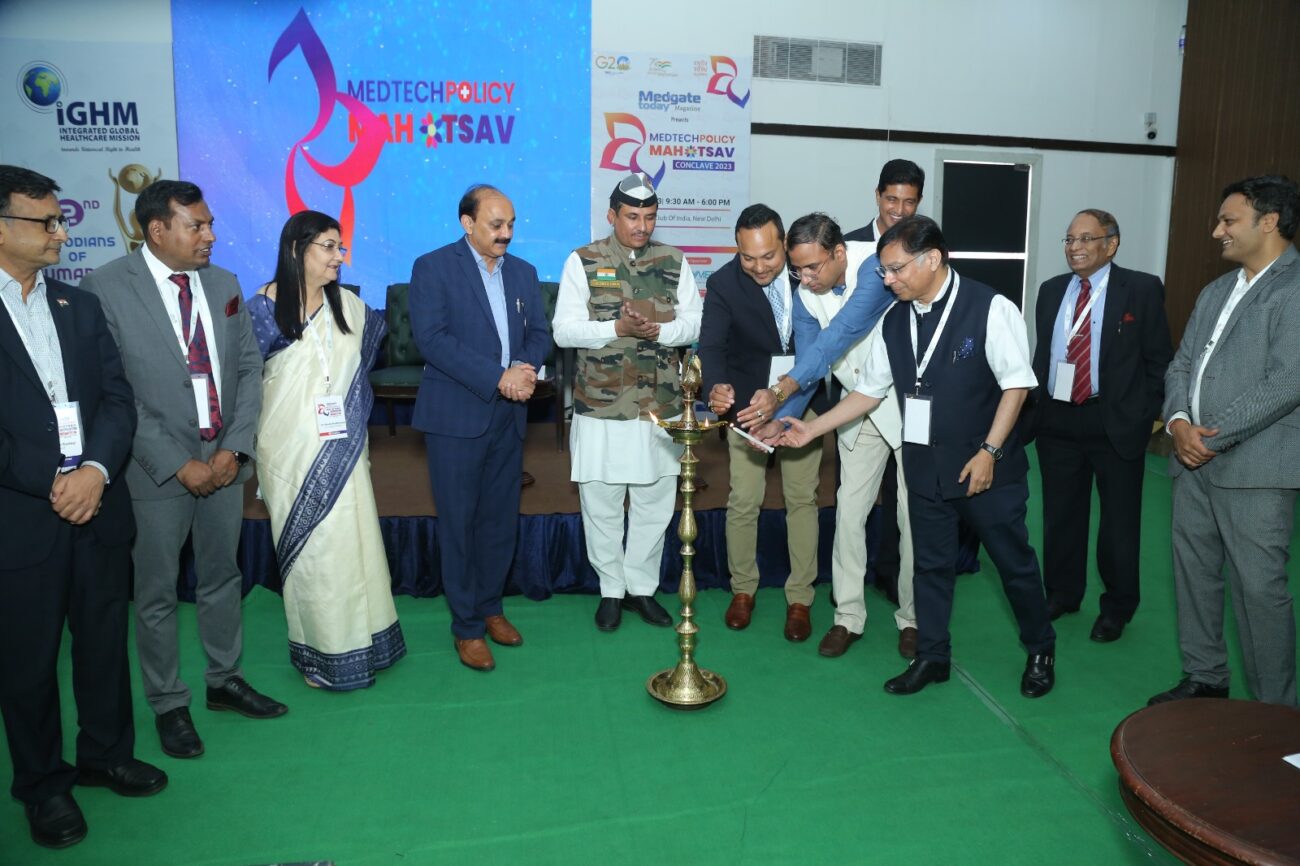Strengthening Diagnostics: India’s Bold Move to Enhance Patient Safety in IVDs
Gaurav Agarwal, Co-Chair of the Medical Devices Committee at PHDCCI, highlights the balanced approach of India’s Central Drugs Standard Control Organisation (CDSCO) in eliminating clinical trial waivers for in-vitro diagnostics (IVDs). This decision ensures both

Gaurav Agarwal, Co-Chair of the Medical Devices Committee at PHDCCI, highlights the balanced approach of India’s Central Drugs Standard Control Organisation (CDSCO) in eliminating clinical trial waivers for in-vitro diagnostics (IVDs). This decision ensures both patient safety and fosters innovation within the healthcare sector. India’s IVD market is an essential pillar of the healthcare system, providing critical diagnostic solutions that aid in early detection, disease monitoring, and precise treatment.
The CDSCO has reinforced its commitment to patient safety by mandating clinical trials for IVDs, ensuring that only thoroughly evaluated products enter the market. While this decision safeguards public health, it also provides a significant opportunity for the Indian IVD sector to align with global regulatory frameworks, promoting innovation that addresses both domestic and international healthcare needs.
Commitment to Patient Safety
The CDSCO’s decision demonstrates an unwavering commitment to patient safety. By requiring clinical trials for IVDs, the regulatory body is ensuring that all diagnostic tools used in India are evaluated for effectiveness and safety under local conditions. This reflects the robust efforts of the CDSCO to uphold the highest standards of healthcare product quality, which is vital, as diagnostics directly impact patient outcomes.
Globally, leading regulatory frameworks, such as Europe’s CE-IVD Regulation, require diagnostic kits to undergo evaluations, including Common Technical Specifications (CTS). These specifications mandate testing on local populations to ensure relevance and efficacy in specific regions. By adopting a similarly rigorous approach, the CDSCO is aligning India with international best practices, emphasizing that patient safety remains a top priority, irrespective of where the product was originally developed.
A Risk-Based Regulatory Approach
A critical consideration in this decision is the need for a risk-based regulatory approach. Imposing clinical trials uniformly across all risk classes of diagnostics may hinder the timely entry of low-risk, proven technologies into the Indian market. Many diagnostics with a low-risk profile have already established a strong safety and efficacy track record globally, having been approved by stringent regulatory bodies like the U.S. FDA or European CE. Requiring such products to undergo full clinical trials in India may not provide additional safety benefits but could delay the introduction of life-saving innovations.
Instead, a differentiated regulatory model, as seen in the European CE framework under the In Vitro Diagnostic Regulation (IVDR), allows for lower-risk products to follow streamlined approval processes while higher-risk products undergo more comprehensive evaluations. By adopting such a tiered model, India could ensure that innovation continues to thrive while maintaining patient safety. Low-risk diagnostics, already validated by rigorous international tests, could be brought to the Indian market faster, ensuring timely access to cutting-edge technologies for patients.
Encouraging Region-Specific Solutions
One of the key advantages of the CDSCO’s decision is that it encourages manufacturers to develop region-specific diagnostic solutions. India’s diverse population and unique healthcare challenges necessitate diagnostics tailored to local needs. By enforcing local clinical trials, manufacturers are driven to refine and adapt their products for the Indian market, ensuring that diagnostic tools are not only innovative but also highly relevant and effective.
This emphasis on local trials is likely to result in more accurate and tailored diagnostics that address region-specific health conditions and patient profiles. Consequently, Indian healthcare providers will have access to technologies optimized for local conditions, leading to better patient outcomes.
Future of the Indian IVD Market
The global IVD market is projected to reach $114.4 billion by 2028, with India’s domestic market expected to grow significantly. By maintaining rigorous evaluation standards, India can bolster confidence in the quality of diagnostics available in its market. As we approach 2030, the Indian healthcare landscape will increasingly rely on high-quality diagnostics to meet the needs of a growing population. The CDSCO’s approach ensures that even internationally approved diagnostics are scrutinized to meet Indian regulatory requirements, further enhancing the quality and reliability of diagnostic tools available domestically.
This focus on high standards promotes not only patient safety but also innovation within the industry. It encourages manufacturers to continually innovate, ensuring that their products are both effective and compliant with the most stringent global standards. This strategy will ultimately position India as a leader in healthcare technology and a trusted hub for diagnostic innovation.
Manufacturer Perspectives
From the perspective of domestic manufacturers, including Innvolution Healthcare, which specializes in cardiac catheterization labs and stents, balancing regulatory compliance with innovation is critical. As a company that adheres to international standards, the challenge lies in navigating local regulations that may not always align with global practices. For companies like ours, harmonization with global regulatory norms can facilitate smoother operations and accelerate the time-to-market for our products without compromising safety standards.
Furthermore, for Indian companies aspiring to be global players, harmonization with international standards is crucial. At Innvolution Healthcare, we believe that collaboration with global regulatory bodies can help India adopt best practices that expedite approval processes while ensuring safety standards are met. This collaborative approach would enable Indian manufacturers to not only cater to the domestic market but also expand into international markets with confidence.
The CDSCO’s decision to require clinical trials, even for internationally approved diagnostics, marks a positive step toward elevating the quality of healthcare in India. While it challenges manufacturers to navigate stricter requirements, it also presents an opportunity to develop more relevant, region-specific solutions that directly benefit Indian patients. This move fosters innovation while maintaining the highest safety standards, creating a win-win scenario where technological advancements are both cutting-edge and tailored to local needs.
In summary, the CDSCO’s decision to eliminate clinical trial waivers for IVDs signals a commitment to rigorous evaluation, patient safety, and fostering innovation within the healthcare ecosystem. It ensures that only the highest-quality diagnostics reach Indian patients, equipping them with the tools they need for better health outcomes. At Innvolution Healthcare, we remain committed to working within this regulatory framework to deliver diagnostics that are safe, innovative, and tailored to meet the specific needs of India.






